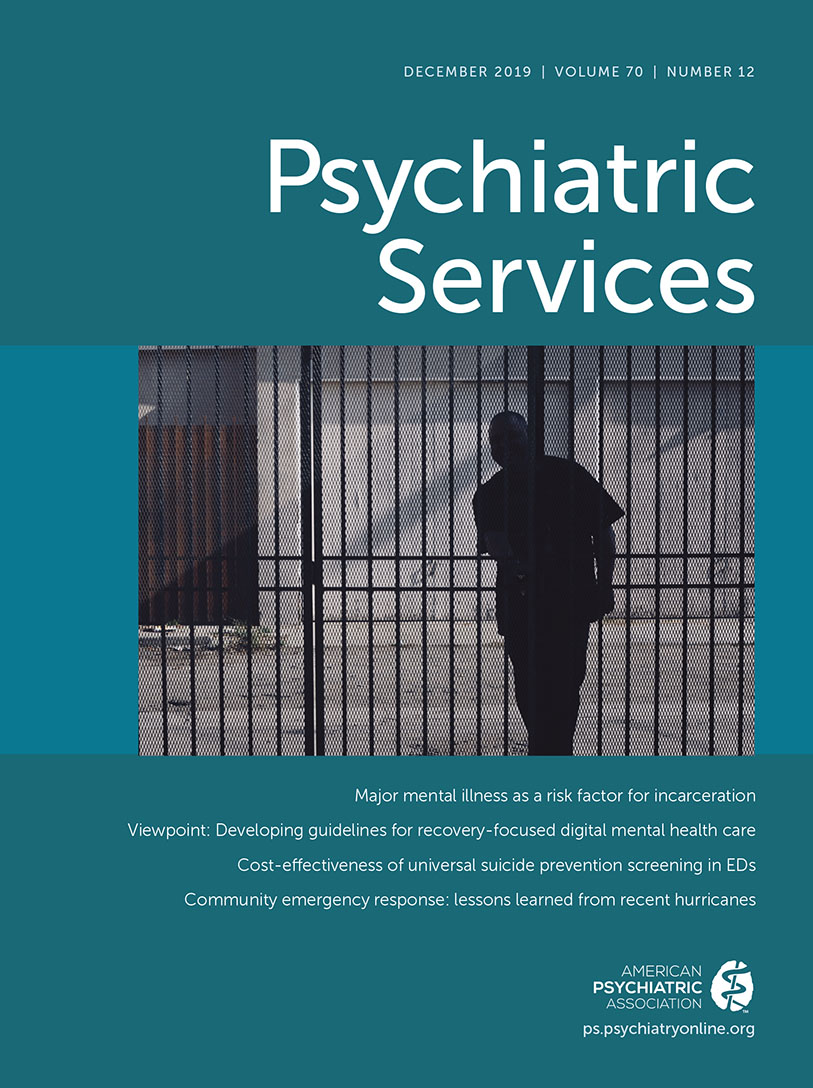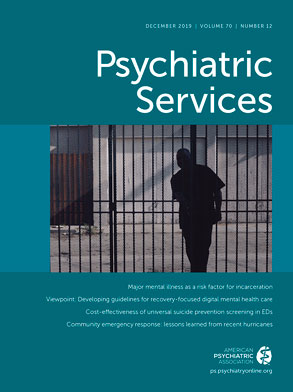TO THE EDITOR: We are pleased that Dr. Kaplan et al. (
1) are interested in advancing knowledge about the interaction of medical and psychiatric illness; however, we have several concerns about their findings. These concerns fall into three areas: use of the 12-item Short Form (SF-12) to uncover psychiatric morbidity, significant limitations in use of the scientific literature, and failure to recognize that most patients with psychiatric conditions present only in the medical sector. We will address each concern in sequence.
Although the SF-12 is a commonly used generic health rating scale, it has problems inherent to the interaction of Physical and Mental Component Summary (PCS and MCS, respectively) scores (
2). Because the PCS and MCS interact in unpredictable ways, which obfuscates interpretation of findings, we suggest that mental and substance use disorders (or behavioral disorders) among general medical patients should be identified via diagnoses recorded in the patient’s medical record, as has been done in most previous studies. This can be an effective method, even in Medical Expenditure Panel Survey (MEPS) data sets, as noted below, and typifies more accurately patients with impairing behavioral health conditions.
The second issue of concern is the study’s failure to include previously published data sets on the frequency with which behavioral health issues are seen and treated in medical patients and the impact on total health care costs when not treated. For instance, two large studies looking at the interaction of “diagnosed” medical and behavioral health conditions, identified by review of 290 and 342 million MEPS records, respectively, showed that 14%–16% of Medicare, Medicaid, and commercially insured individuals, before and after the Affordable Care Act was implemented, have comorbid medical and behavioral health conditions (
3). In 2018, those with comorbid conditions used an estimated $406 billion in extra health services annually, 80% of which was for medical, not behavioral health, services. Interestingly, although the number of patients included in the pre-post studies is not as large as those of Melek et al. (
3), collaborative care, an evidence-based approach to outpatient integrated care with over 90 positive randomized controlled trials, has been shown to effectively improve behavioral health outcomes of medical patients (adults and children) while decreasing the total cost of care per patient, mainly for medical services (
4).
This leads to the final issue, that in order for high-cost, high-need comorbidly ill populations to show the improvement and cost savings described, behavioral health professionals must work where patients show up for health care. Seventy percent of patients with behavioral health conditions refuse to be treated in the behavioral health sector (
5). Expecting providers in behavioral health settings to alter outcomes when they work in a segregated health care sector is unrealistic. Most behavioral health patients are seen primarily in the medical setting. Thus, behavioral health providers should be paid by medical, not behavioral health, benefits so that they can work in the same location as their medical colleagues.

